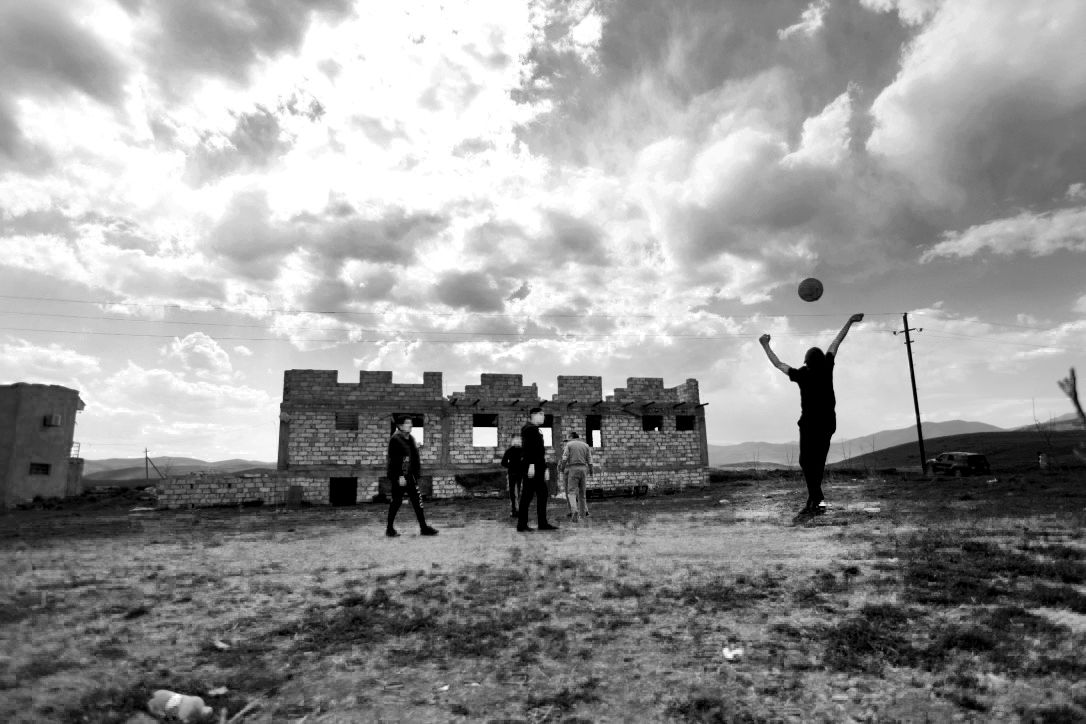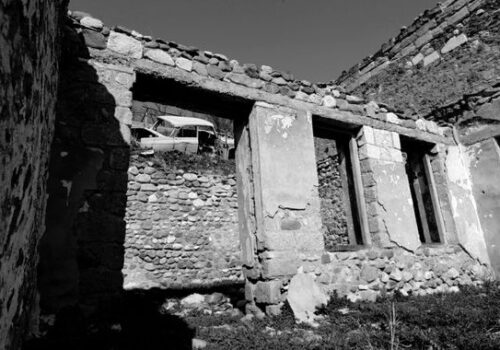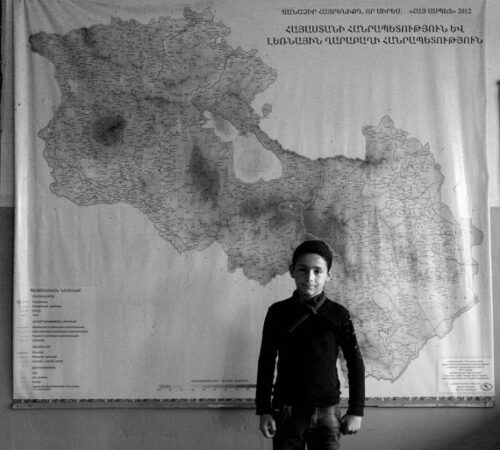
It was May 1992. Accompanied by my dad I was heading for Stepanakert in the back of a lorry to apply to Artsakh State University. At the time little did I know that I would end up in the diplomatic service of the Republic of Artsakh; a country that was yet in its making.
If honest, I never planned to become a diplomat, nor did I dream about it. The circumstances that most of us, the high school graduates of 1992 in Artsakh found themselves trapped in, dictated the sequence of choices to be made in life.
Martouni, my hometown, was under constant shelling and bombing. Along with Grad missiles and Howitzer cannons, bullets from the two Azerbaijani settlements located on both ends of Martouni were sporadically passing around us. In the dark, the colorful Kalashnikov bullets were like dancing firebugs; during the day, their deadly presence was invisible and haunting.
We were peaceful like our mountains,
You invaded like savage storms.We rose against you like our mountains,
You howled like savage storms.But we are eternal as our mountains,
You will die out like savage storms.Hovhannes Shiraz
We had to leave our small, cozy flat on the top-floor for the basement of our apartment building. Most of the Soviet-built multi-block houses had basements where all sorts of communication lines were located. They were not equipped for living; rather served as a warehouse for homemade canned food, jams etc. In those days our basement served as “home” to 30 families residing in the building, mostly women and kids, as all the men of all ages were at the posts. In relatively calm periods, we would sneak out of the basement to cook and collect water that was available for an hour at certain times. The whole building was one big family that shared everything “home-like:” food, burdens. I remember women and girls were knitting socks for men, kids were giving “concerts” to cheer them up and rats were sneaking out of their nests as if to complain about the unexpected neighborhood…
There was no water, no electricity, and no natural gas. And no transportation. There was no petrol, and the scarce amounts of diesel available was saved for tanks. People had to go on foot to destinations inside Karabakh, and if one was lucky enough to come across a lorry traveling halfway the same direction, it felt like a blessing. We used to walk more than 60 kilometers sometimes to check on relatives or to attend a funeral of a close one…

With the job, life became more interesting and fulfilling. It did not really matter that on the third day of work I was asked to translate for an important guest at the Artsakh parliament. That was quite a responsible task for a third year teacher-to-be with no previous experience in official translation. However, since no other choices were offered, I had to take the challenge. It seemed to go fine and from then on, I was translating for most of the people and delegations visiting Artsakh. Through my work, I met a great number of incredible and inspiring people from all walks of life; from construction specialists, eye doctors and neurosurgeons to baronesses and congressional representatives. I learned something from each of them. And made friends with many of them.
It may seem strange, but while acting as an interpreter I also learned a lot about my country and my people. It was just after the war, and the whole country was devastated. I traveled throughout Artsakh with different delegations and met many of my co-countrymen and women who struck me with their simple wisdom and straightforwardness. In those war-torn villages and towns amidst the ruins and hardships, I saw people full of hope and dignity. And I felt proud belonging to them. I also felt a need to be useful…as much as possible or even impossible…

Traces of destruction from the war in early 1990s can be seen across Artsakh. Photo by Roubina Margossian.
I started to work with the Artsakh Foreign Ministry in January 2000, in the position of Assistant to the Foreign Minister, who was a woman. My job was interesting and rewarding in many ways. And I am not talking about financial benefits, because the salaries were very low those days. It gave me much more than financial benefits, it allowed me to live a life of substance, to feel that I was contributing to the common good and to be sure that one day things will get much better.
Today, I serve as Deputy Foreign Affairs Minister of Artsakh. It has been a long, sometimes treacherous journey, laced with pain and hope and a sense of isolation working in the service of a country that is not recognized by the world, but I strongly believe life is what you make of it. And this refers to the future of Artsakh too.
Artsakh will be what we make of it…


